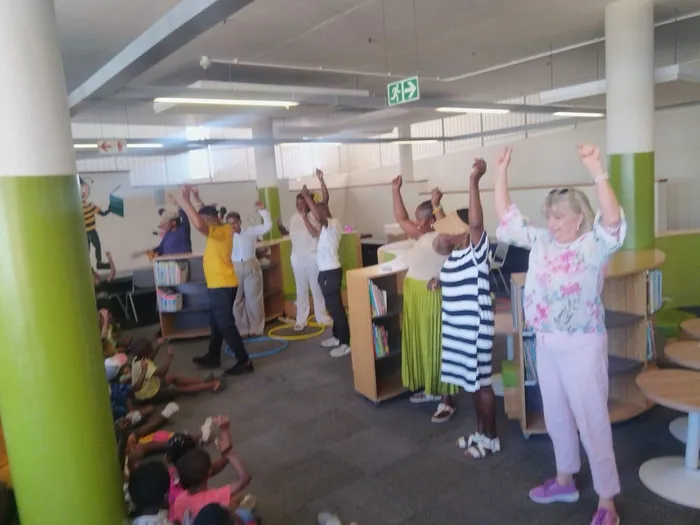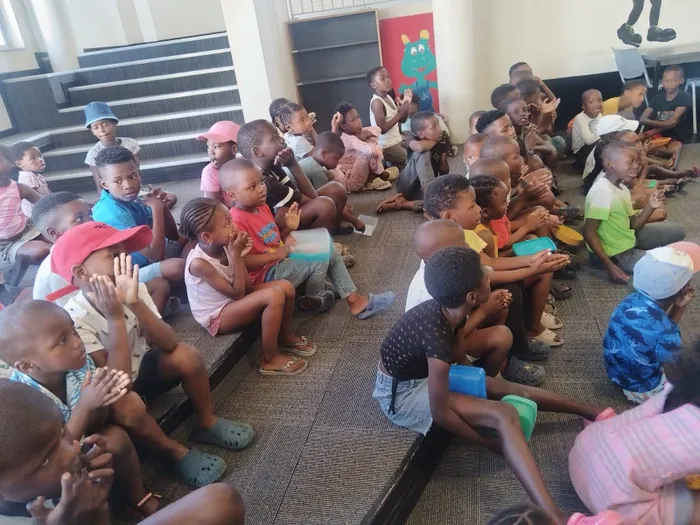
Volunteers are also part of the exercises at the reading club.
Image: Phiri Cawe

Children listen attentively to their teachers at Kuyasa Library.
Image: Phiri Cawe
What started out as a small initiative has grown into a reading club for children aged six to 13 at the Kuyasa Library.
The programme aims to develop literacy skills, build confidence, and create a safe, supportive space for learning.
Each session starts with welcoming participants and laying of ground rules by facilitators, and allowing children to share their expectations. The children first play with educational toys or do aerobic exercises when they arrive, so that they engage and bond with each other before they start reading books.
The programme is led by Thumeka Nyusela and six volunteers from the library. According to Ms Nyusela and librarians, the club is already showing promising results, thanks to the dedication of both volunteers and the children themselves.
"They are doing well since they started. They now have confidence in themselves and in standing in front of others. That was something that they lacked,” she said.
The Kuyasa Library had also built a partnership with the constituency MP for N2 Khayelitsha 2, Katherine Christie, and councillor Colleen Mes.
Ms Christie said she was excited to see the progress. She said many of the children struggled with basic reading skills, often hesitant to speak or participate. However, under the dedicated librarians' guidance and with the support of a few committed teachers who assist weekly, the children have made remarkable progress.
Ms Christie said she was especially proud of how far the children have come.“It is good seeing them with confidence and now speaking English too. When they started, many couldn’t read a full sentence. Now, they read with excitement and understanding. I am happy to be part of such young lives who want education,” she said.
The children take turns reading aloud, building their confidence and fluency. The teachers guide them through the stories, helping them understand new vocabulary and ask thoughtful questions. After the reading, the children answer questions based on the stories, which helps develop their comprehension and critical thinking.
Following the learning activities, the children are taken outside for some physical exercises, like light stretches, running games, or team activities.
The library also ensures that every child is given a meal at the end of each session. The belief is that learning is best supported when children are not hungry.
The food is provided, and some take their meals home, a gesture that has not gone unnoticed by parents and teachers alike, said Ms Nyusela.